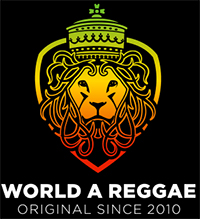These are good times for Wayne Wonder. Eight months ago, the veteran singer’s 2003 hit song No Letting Go was certified gold, and since then things have looked up even more.
On April 22 (celebrated globally as Record Store Day), New York-based independent company DubShot Records will release Madhouse Records’ 30th-anniversary Collection. This commemorative album contains 13 songs produced by, arguably, dancehall music’s most successful label.
Wonder has two songs on the set — Joy Ride (with Baby Cham), and Informer. On May 6, he is scheduled to perform at the Lovers And Friends Festival in Las Vegas with other dancehall kingpins such as Beenie Man, Shaggy, and Sean Paul.
That event, promoted by Live Nation, also features R&B/pop acts who ruled the charts during the 1990s and early 2000s. They include Boyz II Men, Blackstreet, Ginuwine, Usher, Busta Rhymes, Mariah Carey, and Missy Elliott.
“Just being on that show is a good look. Live Nation reached out to my people, so things are looking good,” said Wonder. He added that after over 35 years in the music business, his career is still “moving in the right direction. I’m busy like a bee.”
No Letting Go was one of several hit singles recorded on producer Steven “Lenky” Marsden’s massive Diwali ‘riddim’, released in 2002. Sean Paul’s Get Busy and Sufferer by Bounty Killer were other songs that Diwali drove to global success in dancehall markets.
Throughout the 1990s, Wayne Wonder had a string of hit singles for Donovan Germain and Dave Kelly, the young turk that started Madhouse Records in the early 1990s. For Germain’s Penthouse Records, he scored with Saddest Day of My Life and Bonafide Love (Movie Star) which he did with his longtime friend, Buju Banton.
With Kelly, he also hit the charts with Bashment Girl and the erotic Keep Them Coming. No Letting Go, done after he left the Madhouse camp, was his biggest hit, peaking at number 11 on the Billboard 100.
Wayne Wonder is still savoring its certification for sales of over 500,000 units by the Recording Industry Association of America.
“Not many artists in Jamaica are certified, so it’s a big deal as Chris Martin says,” he said.
By Howard Campbell



